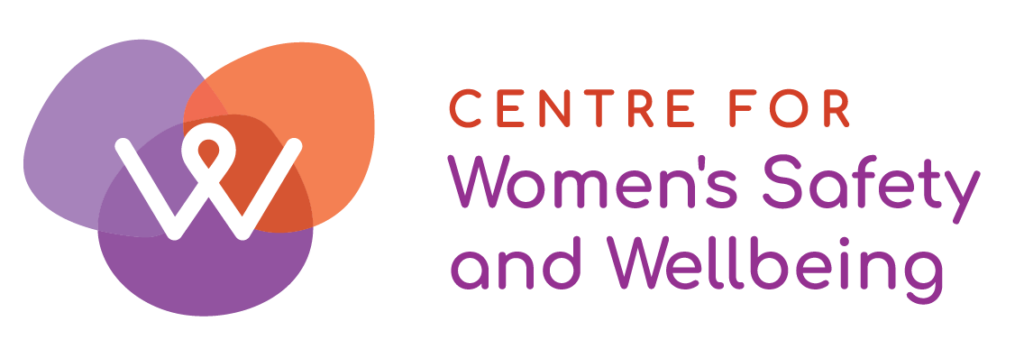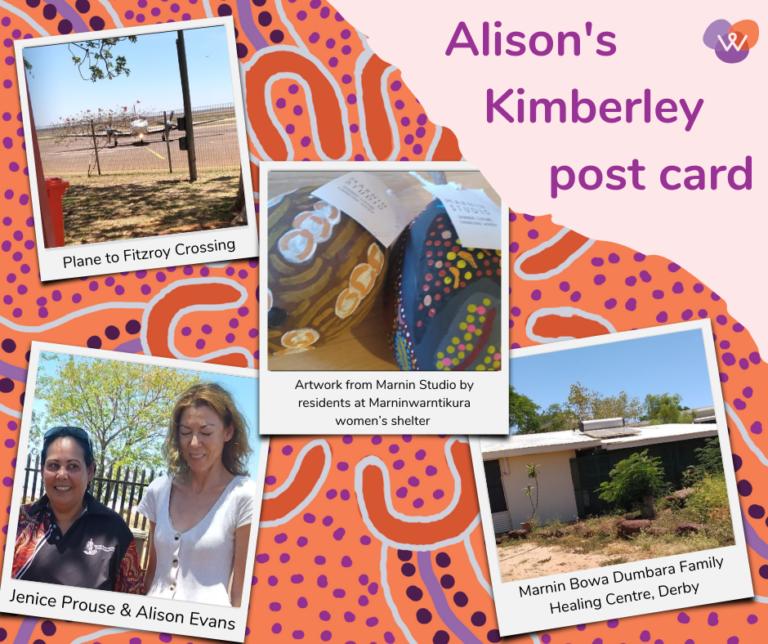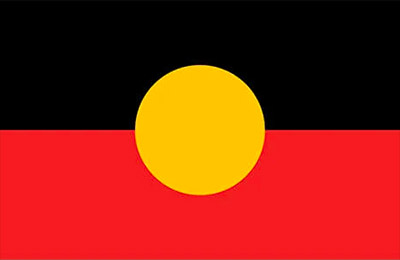The Centre for Women’s Safety and Wellbeing, in collaboration with Stopping Family Violence, will be collecting insights from metropolitan, regional and remote Western Australia to identify gaps in service provision that prevent us from being able to more effectively respond to victim-survivors and perpetrators. We will be listening to services on the ground to identify how we can achieve safety for women, children and families in a diversity of communities and geographical locations . The findings of the tour will be published in early 2022. It is hoped that this information will be used to inform the commissioning work currently being undertaken by the Department of Communities.
Alison Evans, Director – Domestic, Family & Sexual Violence, was visiting family and domestic violence services in the Kimberley region last week to gather local knowledge on family and domestic violence and how it is being responded to on the ground from the perspective of local service providers. The visit highlighted the skills and expertise of local services, who know their community best, and can readily identify opportunities for enhanced service delivery.
Alison's post card
“Although my visit was brief, I saw diversity between and complexities to Aboriginal women’s lives. There are communal, but also individual, contexts for family and domestic violence services to consider. Contemporary discussions echo older commentary.
In my visits to women’s refuges in Fitzroy Crossing, Derby and Broome last week I considered the complex reality of the lives of Aboriginal women and the staff supporting them. These refuges must attend to the unique implications of service delivery outside the urban environment. Seeing Aboriginal women, children and men is seeing a particular place and context. And seeing place and context is not simply attending to the physical environment. Rather it includes aspects that are social, political, and economic. Remote environments are not problematic in their nature and living outside major towns and cities are affirming on many levels. For many Aboriginal people being on country or having access to country is vital.
Demands by Aboriginal women for community ownership of the problems of family violence, as well as the solutions to it, seem constant. In addition, there are ongoing calls for holistic and healing support for these communities. Deeper still is the acknowledgement of the continued authority and strength of Aboriginal women and the ways in which these strengths are drawn upon not only to resist violence but to empower women within families and communities. However, I also noted fatigue with the many enquiries, frustration with lack of progress and disconnect between aspiration and delivery of responses to Aboriginal women.
Worthy of celebration are achievements in self-directed and self-managed services. Aboriginal women’s attention to the issues of family violence and the surrounding debates and challenges in responding are clearly long standing, deep and sustained.
In Broome, the Coordinated Response Service spoke of the obvious impact that distance has on service costs. Difficulties in recruiting and retaining staff are linked to professional issues (burnout, isolation, inadequate orientation, training) and personal issues (such as available housing and affordability). Staff on the ground felt that their jobs were impossible to sustain due to chronic under funding. They spoke of the need for strong, supported local governance and management arrangements; and funding that supports services to sustain:
- links with other service providers and key stakeholders;
- a culture of reciprocity with other providers within the community;
- trust with communities;
- outreach services;
- appropriately qualified staff;
- holistic care that is flexible and able to meet local needs;
- realistic operational budgets; and
- provision of supervision and professional development for staff.
The visit highlighted Aboriginal viewpoints on approaches to dealing with violence against women and the cultural understandings of family violence and differences between Aboriginal and non-Aboriginal approaches to perpetrators and victim-survivors. In particular, the centrality of family and community, as opposed to individuals or couples.
Aboriginal communities are playing a more significant role in shaping program and service responses. However, communities and advocates continue to call for more holistic approaches to the issue of family violence including recognising the continuing impact of colonisation, poverty, housing and other health and social issues. While there needs to be family violence focused services, a much larger effort is required to improve the wider social and economic health of Aboriginal communities.”






